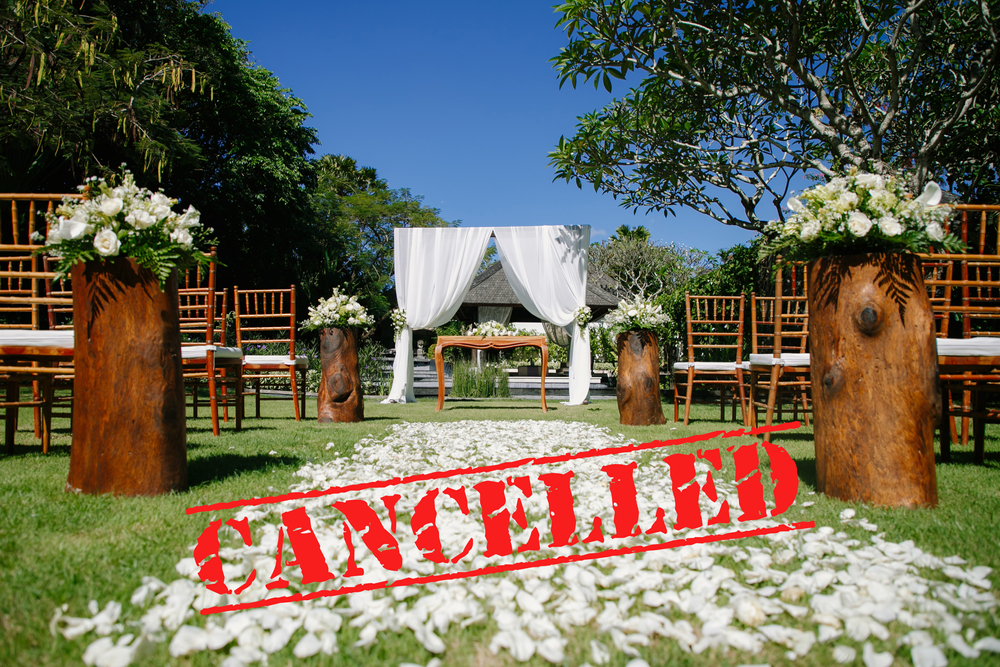
Many were left in disappointment and saying that the coronavirus pandemic has changed Canadian life as we know it is the understatement of the year. From our daily routines to major events, almost no aspect of our lives has remained untouched by the pandemic. While many couples have found ways to tie the knot through virtual weddings or scaled-back events, some have postponed their plans. Other have postponed multiple times, leading them to cancel their planned celebrations altogether. Having to cancel a wedding celebration is not an easy thing to do. Here are some ideas for managing your feelings.
It’s OK To Cancel
One of the first things to remember is that it’s ok to call off the wedding celebration. First of all, it’s usually the safest option. While you had your heart set on starting the next phase of your life surrounded by loved ones, public gatherings are still risky. The big ceremony event is not required for solemnizing your union. Recognize that government mandates and other business restrictions can put an extra burden on others to attend your celebration. Cancelling the big day was done for the greater good, and that’s perfectly fine.
Disappointment Is Natural
It would be strange if you weren’t disappointed or sad about cancelling the wedding ceremony. It was your party and you can “cry if you want to.” Making space to sit with your sadness is not only natural, but it’s also a healthy part of dealing with your feelings. The event might’ve been an opportunity to see old faces, meet new people from your partner’s family and deepen bonds with your nearest and dearest. You may be tempted to look on the bright side as a way to avoid feeling disappointment. This was to be a special moment in time, and things didn’t work out as planned.
It’s a Grieving Process for Others Too
While you might recognize the importance of grieving in other types of loss, having to abandon wedding plans also inspires feelings of grief, not just for you but other people as well. Perhaps your partner or your parents are also struggling with disappointment. Try to avoid offering comfort through statements that start off with “at least…” You can better support by being empathetic instead of sympathetic. Talk to your friends and family who are also finding difficulty in dealing with the cancellation. Wedding celebrations, in reality, are all about your family, village or community, who want to shower you and your spouse with love, so they feel the loss also.
Activities To Move Past Grief/Disappointment
While it’s important to acknowledge and deal with your grief, there are activities you can do to help you process your feelings:
- Journaling: Carve a few minutes early during the day to write down your feelings. It’s important that you allow yourself to experience your feelings uncritically. Take no more than 15 minutes and find something fun to do afterwards.
- Sitting in gratitude: A healthy way to look on the bright side of things is by finding time to appreciate what’s going well, especially in spite of the pandemic. The love of a new spouse is a great place to focus this energy of appreciation.
- Moving on: While it’s important to feel the way you do, you also need to assure yourself that the acceptance of reality is also important. At some point, this pandemic will pass and there will be plenty of loving and living to do before, during and after. Remind yourself on a regular basis.
A big wedding celebration is the dream of many engaged couples. While a global pandemic can throw a wrench into your plans, even to the point of cancellation, it’s ok to be disappointed or sad. Sit with your feelings and then plan on moving past this grieving period. Perhaps you can invest the time and treasure intended for your marriage ceremony into a future wedding anniversary instead.



